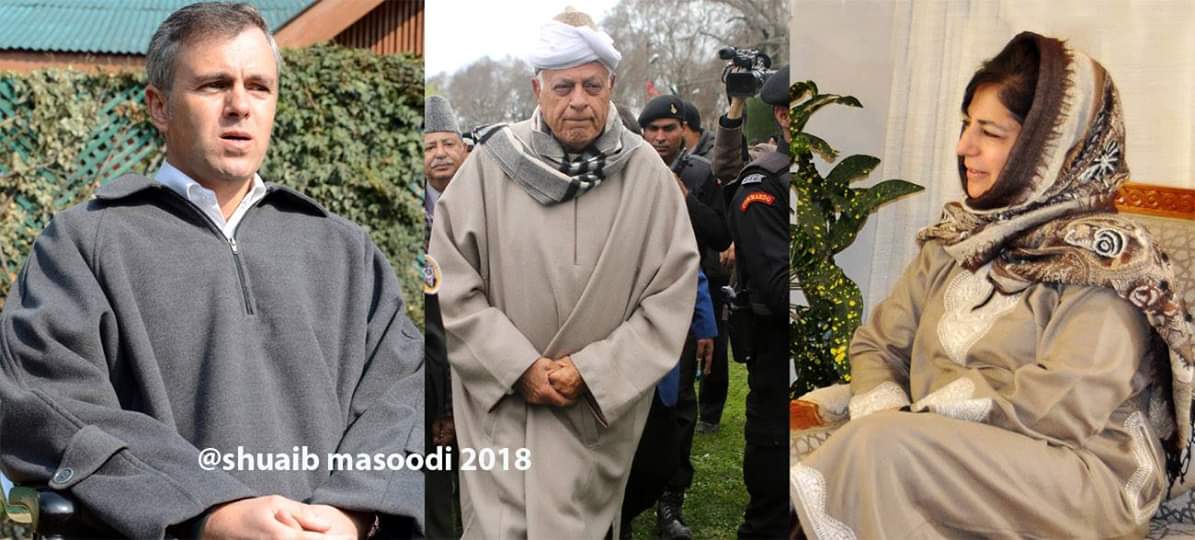SRINAGAR: School education department came under severe criticism by the people of Kashmir after an order issued in which they reads banned the traditional Kashmiri pheran.
“All the officials visiting this office are advised to visit with proper dress code during any official visit. It is recommended that no official will visit this office wearing ‘Feran’, traditional trousers and sleeper/Plastic shoes (sic),” the order reads.
The reaction came from none other than the former Jammu and Kashmir Chief Minister and National conference Vice President Omar Abdullah. He urged school education department to withdraw its order asking officials to refrain from wearing the Pheran.
Meanwhile Omar Abdullah wrote on twitter “I fail to understand why pherans should be banned! This is a regressive order that makes no sense at all. Pherans are a very practical way of keeping warm during the cold winter aside from being part of our identity. This order should be withdrawn.”
He added, “My father & I have worn pherans to official functions many times over the years & will continue to do so, silly government orders notwithstanding.”
Congress leader Salman Nizami wrote on twitter “Pharan is our cultural identity. What’s the governor’s agenda? Its just a cloth which keeps us warm in winters. By banning pharans what’s the govt trying to prove? They will get another egg on their face! Revoke this order @jandkgovernor #SayNoToPharanBan”.
The order has come under attack from commoners as well Sajad Ahmed one of the twitter user write “What the non sense people are running our kashmir but remember this policy nowom wards is not applicable to make kashmiris servants of india again because the real stars of kashmir are using this tradition even in foreign countris”.
Another twitter user Dr Sheikh Aamina “Not only Kashmiri’s wear it with pride…. Bihar CM @NitishKumar Dons ‘Pheran’ during winters in Bihar hence ‘pheran’ should be given international recognition”.
Kamaljit sandhu another user “Pheran was not allowed for security reasons, esp in highly sensitive zones. But perhaps Pheran for all its usefulness is not seen as a formal ware. CM’s n political heads can’t be told what to n not to wear”. It’s because of bending over backwards by Kashmiri pro Indian leaders that u have reached this impasse. u will have to demand your rights like every other Indian does. Omar you have to remember you are a Kashmiri leader , you represent Kashmir , stop being more loyal than king”.
Another user Pt. Lalit Pandey “I too, who is not aware of cultural connection of Pheran – do agree that Pheran is very good tool for fighting cold of J&K. But, may be misuse would have led to such thinking of banning.
And I don’t think Pheran shd not be linked with Muslim religion, but with J&K cold”.
Politicians, both from the resistance as well as the pro-India camp, also have Pherans in their styles. The Abdullahas are usually seen in them, and from last year, Mirwaiz Umer Farooq too joined the style in public appearances. Yaseen too used to wear them in winters.
According to oral historian Zareef Ahmad Zareef, Pheran existed in Kashmir long before it was opened to Central Asian influence in the 14th century.
According to Zareef, the early Pheran was called Loach, which used to be two pieces of cloth held together with a unique stitching and worn all year in different fabrics. Then, as he told Kashmir Reader, it was mixed with the Paerahan, the Persian upper clothing, which gave it the present shape of Pheran. It also survived various trends of modern western style over the last three decades, but today it is signature wear in both casual and formal settings, a significant change that has not taken place once in all its existance, he added.
Pheran, is a traditional long robe worn by Kashmiris since ages. According to some historians, it dates back to the Mughal Period, while some say it is even older than that and derived its name from a Greek word, Apron. Pheran is an integral part of the cultural heritage of Kashmir and also is one of the most common robes used during the winters to beat the chill. (PTK)

